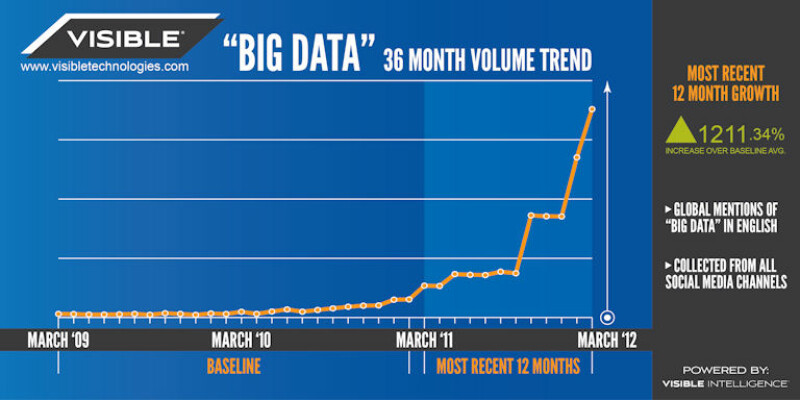Big Data? Act Small
The phrase ‘Big Data’ has been bandied around quite a bit in the last year. A recent study by Microsoft found that 72 per cent of those businesses surveyed are already planning to implement big data into their business. With 51 per cent saying they are already well on their way to deploying solutions.
According to research by MGI and McKinsey’s Business Technology Office, there are five ways in which big data can create value:
- Big data can unlock significant value by making information more transparent and usable.
- As organisations create and store more transactional data in digital form, they can collect more accurate and detailed information to help make better management decisions.
- Big data allows ever-narrower segmentation of customers and therefore much more precisely tailored products or services.
- Sophisticated analytics can substantially improve decision-making.
- Big data can be used to improve the development of the next generation of products and services.
I would like to focus on the third of these, using data to allow ever-narrower segmentation. Let’s roll the clock back to the days before business computing allowed the mass storage of data. The smart travel agents got to know their customers, where they liked to travel, the types of holiday they wanted, how much they typically spent. They then used this information to make pertinent and relevant offers. This would result in satisfied, loyal customers and, as you know, the cost of keeping a loyal customer transacting with you is much less than winning a new customer.
Coming to the present day, travel shopping is now a much more de-personalised experience. At the point of sale, travel products are just information stored on computers. Travel lends itself to electronic shopping and our customers have taken to this very well. Rather like ATMs resulted in banks’ customers not wishing to talk to cashiers behind the counters, so the internet has led to many travellers having a preference to book holidays with no human interaction with their travel companies.
The result: customer loyalty has decreased, customer acquisition costs have increased, so impacting on travel company profitability. However, many travel companies have a rich asset that they are not fully utilising – the data they are holding about their customers. In this data is the information needed to move towards the goal of ‘acting small.’ Like the travel agent of old, the objective of acting small is to move towards one to one marketing, understanding your customers’ preferences sufficiently that you can promote offers that you know will be directly attractive to the individual to which they are addressed.
 This is not easily achieved but it is so important that, at Genesys, we have taken the decision to team up with Database Marketing Counsel to offer their Travelosophy™ service, to put one to one marketing into practice. You can read more about this by clicking this link.
This is not easily achieved but it is so important that, at Genesys, we have taken the decision to team up with Database Marketing Counsel to offer their Travelosophy™ service, to put one to one marketing into practice. You can read more about this by clicking this link.
If Google can drive around the streets taking photos of your house, if Facebook can launch their Graph Search , then you should be making the most of the data you have. Big data? Act small.
